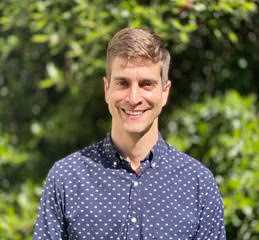Today, we are happy to bring you our conversation with Matthew Goldmark, author of FORMS OF RELATION: Composing Kinship in Colonial Spanish America.
What inspired you to write this book?
I think a lot about family history—the stories we tell and how we identify with the past. I’m not the only one: mail-in DNA services have exploded, and people tune into TV shows that track down celebrities’ secret family histories. But these services and shows make it seem like biology and bloodlines hold the key to who we are. I wanted to ask if and how the family looked different in the past.
What did you learn and what are you hoping readers will learn from your book?
While I wrote this book, I kept seeing how people working in government, religion, and law defined the family in different ways. Family wasn’t a single “thing” that they agreed on, but something that people made to “do something” –often to gain the upper hand in uncertain political times. Even though my book focuses on the sixteenth and seventeenth centuries, I hope that readers also think about this pattern in their world today.
What surprised you the most in the process of writing your book?
I didn’t realize how excited I would be when I touched pieces of paper that people had written on five-hundred years ago. Looking at ink bleeding on a page forced me to remember that real people sat down at a desk, talked to each other, and wrote notes in cursive scribbles. When you look at old pages, you are seeing lives in real time—it is powerful. I tried not to forget this when I copied the same words over onto a computer.
What’s your favorite anecdote from your book?
We can’t underestimate the power of testimony. In chapter 3, I write about an Indigenous school teacher named Juan Mateo Gonzalez who describes himself as “the same” as any other European Christian in a job application. That said, his application—and identity—depends on character witnesses, from Indigenous community members to Church elite. Even though the language and documents are historical, the pattern reminds me of our own practices today. Do we exist without letters of recommendation and networks?
What’s next?
I am a big comic book reader, and you’d be surprised how many indie and mainstream comics are dealing with the early modern period and Spanish colonialism. A lot of these comics are experimental and imaginative—some try to look like a sixteenth-century codex and others imagine worlds without Columbus. So, I have been spending time comparing early modern books and comics to see how writers and artists make connections across history. And any reason to read more comics is a good one.





